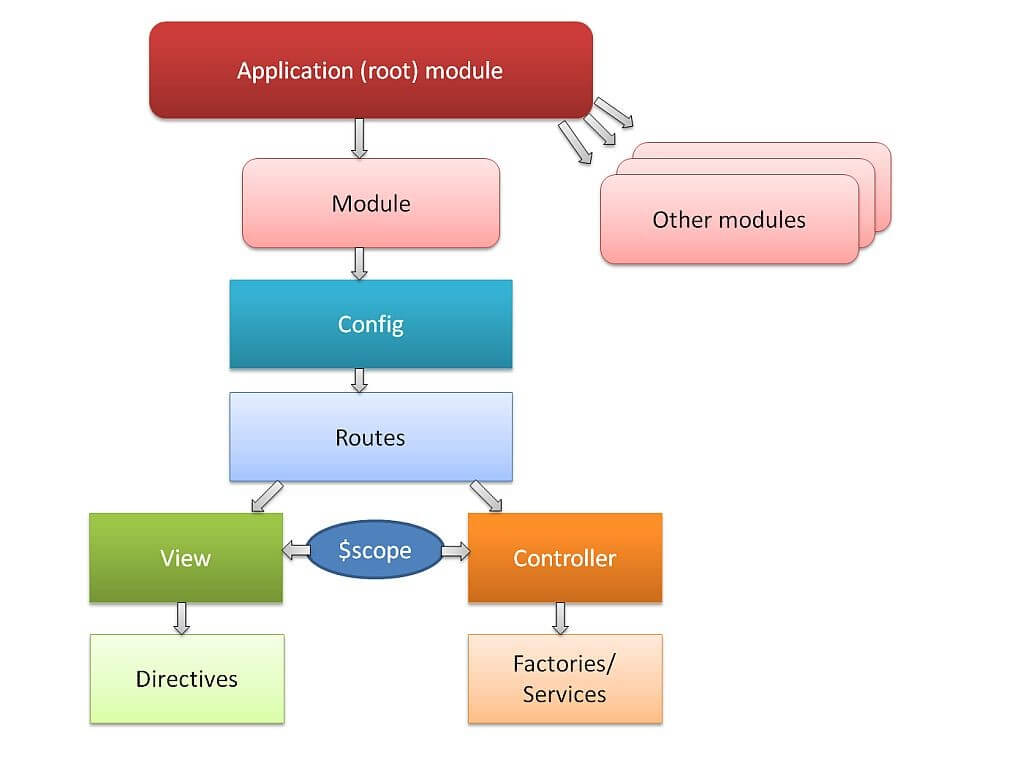Why AngularJS ?

As we know HTML is great for designing static documents, but it does not work properly when we try to use it for declaring dynamic views in web-applications. Solution to this issue is AngularJS, which allows us to extend HTML vocabulary for our application. The resulting environment is extraordinarily expressive, readable, and quick to develop. AngularJS (also referred as Angular or Angular.js) is a JavaScript-based open-source front-end web application framework mainly maintained by Google and by a community of individuals and corporations to address many of the issues faced in developing single-page applications. Angular is the framework where each tool was designed to work with every other tool in an interconnected way. The AngularJS framework works by first reading the HTML page, which has embedded into it additional custom tag attributes. Angular interprets those attributes as directives to bind input or output parts of the page to a model that is represented by standard JavaScript variables. The values of those JavaScript variables can be manually set within the code, or retrieved from static or dynamic JSON resources.
Few features of the AngularJS which will make you use this framework are discussed in this article.
-
There is no need of using observable functions; as Angular analyses the page DOM and builds the bindings based on the Angular-specific element attributes. This requires less writing, the code is simpler, easier to understand and less error prone.
-
Angular transforms the page DOM directly instead of adding inner HTML code. Thus it is faster in operation.
-
Data binding occurs not on each control or value change (no change listeners) but at particular points of the JavaScript code execution. That dramatically improves performance as a single bulk Model/View update replaces hundreds of cascading data change events.
-
There are number of ways available to do the same things, thus accommodating to particular development styles and tasks.
-
Supports other important aspects like dependency injection, routing, animations, view orchestration, and more.
-
IntelliJ IDEA and Visual Studio .NET IDEs support AngularJS framework.
-
Supported by Google and a great development community.
Latest Blog

What are Progressive Web Apps (PWAs)

Apple Event September 2021 Recap

Windows 11 hands-on: Here's Everything You Need to Know About Microsoft's Latest Operating System

YouTube Shorts - Things You Should Know

8 New Features of Android 12 You Didn’t Know

Android 10: Top feature you need to know!
Akshay Gangwar
50 mins ago

Temperature & Humidity IOT Solutions for Food, Agriculture and Medical Industry
Akshay Gangwar
50 mins ago

HTC Reportedly Planning to Re-enter Indian Market in August
Akshay Gangwar
50 mins ago

Apple OS X Server: File Transfer Protocol
Akshay Gangwar
50 mins ago

